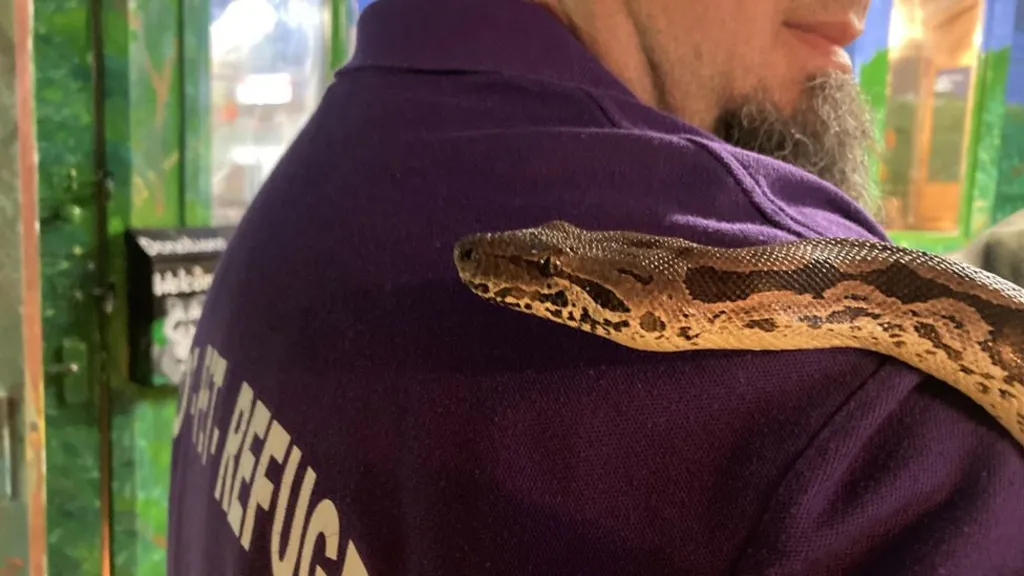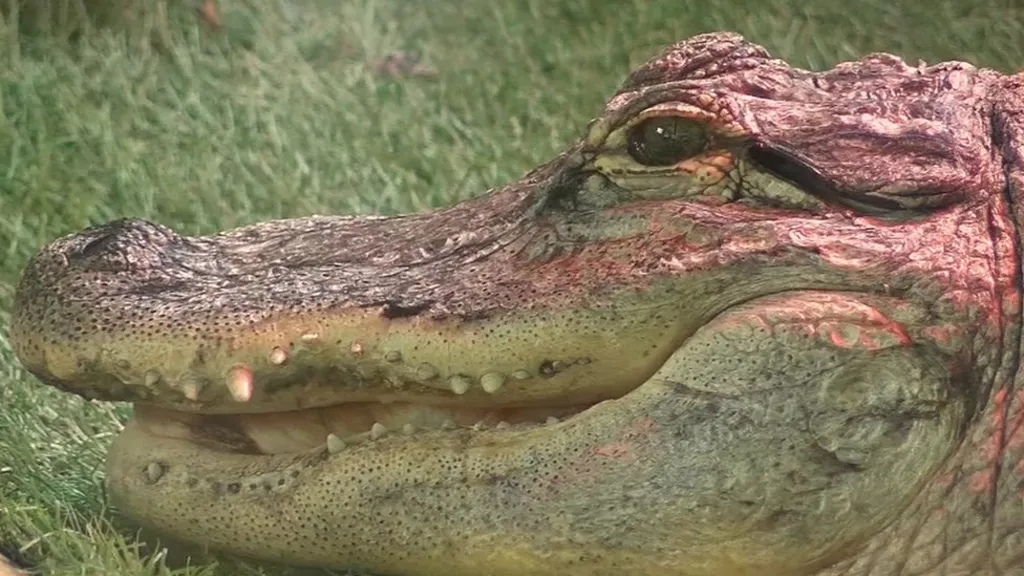Alligators and other exotic creatures purchased as “status symbols” are being relinquished by owners who become intimidated as they grow larger, a charity has disclosed.
Pam Mansfield, co-owner of The Exotic Pet Refuge, implored individuals to thoroughly research species prior to acquiring them.
She remarked, “They’re often viewed as status symbols. People might say, ‘I’ll have an alligator or a 10ft boa constrictor.’
“Yet, as the animal matures and increases in size, fear can set in, leading owners to surrender their pets.”

The Lincolnshire refuge currently houses 350 exotic creatures, a notable increase from 300 at this time last year.
Among the inhabitants are parrots, monkeys, snakes, and even alligators and caimans.
Referrals come from zoos nationwide, as well as the RSPCA.
Mrs. Mansfield, who co-owns the sanctuary with her son Darren, explained, “People seeking to rehome an exotic animal might approach a zoo for guidance on suitable facilities. Many zoos maintain a referral list, and we’re often among those recommended.”
Ownership of certain species, including alligators and caimans, falls under the jurisdiction of the Dangerous Wild Animals Act 1976. However, Mrs. Mansfield noted that some owners lack the necessary licenses to keep such animals.
She attributed the growing demand for sanctuary to owners’ “limited understanding” of the responsibilities involved in caring for exotic animals.

“People often acquire these magnificent creatures when they’re just 2ft or 3ft long,” Mrs. Mansfield observed.
“But they don’t stay small for long. Take a boa constrictor, for example. As it grows, it’ll need a larger and larger vivarium. By the time it reaches around 12ft, it practically demands its own room. Sadly, many folks simply don’t have that kind of space to spare.”
Mrs. Mansfield pointed to the ongoing strain of the cost of living crisis as a key factor driving owners to part with their exotic companions.
“Creating the right environment for these animals can be quite demanding, especially when it comes to warmth. Our alligators, for instance, enjoy heated pools and cozy underfloor heating, while the monkeys have their own toasty central heating,” she elaborated.
During the peak of electricity prices, Mrs. Mansfield shared that the charity faced daunting monthly bills, sometimes reaching up to £10,000. Although costs have since eased, she stressed the continued importance of fundraising efforts to cover these significant expenses month after month.

Amidst the financial strains, Mrs. Mansfield and her dedicated team brace themselves for an anticipated surge in requests to accommodate more primates.
Starting in 2026, a license will become mandatory for the ownership of animals like orangutans, chimpanzees, lemurs, and monkeys.
The refuge strategically opens its doors six times a year, strategically timed to showcase their vital work.
Mrs. Mansfield elaborated, “If we were to extend our opening hours, we’d need to obtain a zoo license.”
Her journey in caring for unwanted exotic pets dates back to 1976 when she welcomed her first guest, a Burmese python. Reflecting on those early days, she recalled, “My husband ingeniously transformed our sideboard into a makeshift vivarium.”

Mrs. Mansfield passionately advocates for thorough research before anyone considers purchasing an exotic animal.
“It’s crucial for people to delve deep into understanding the needs of the animal,” she emphasized. “And they must be aware that it’s not just a pet; it’s a commitment and an expensive endeavor.”
